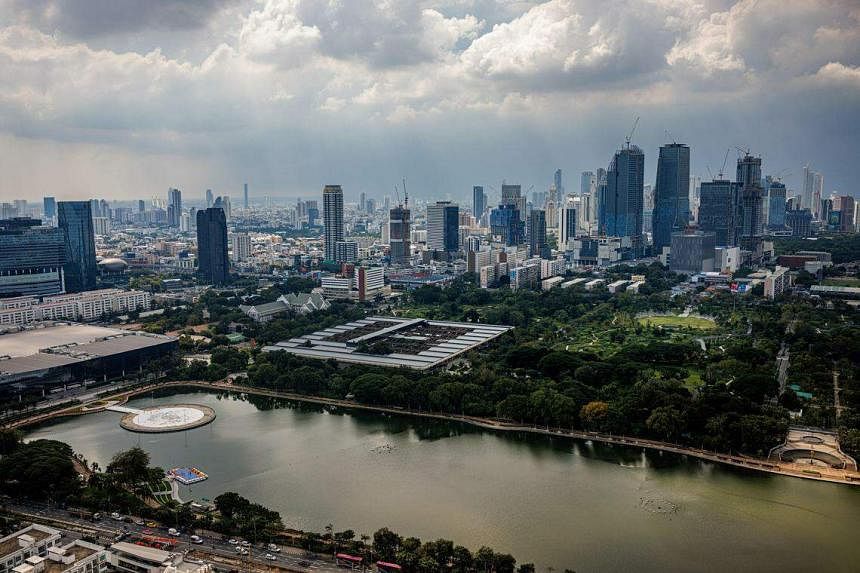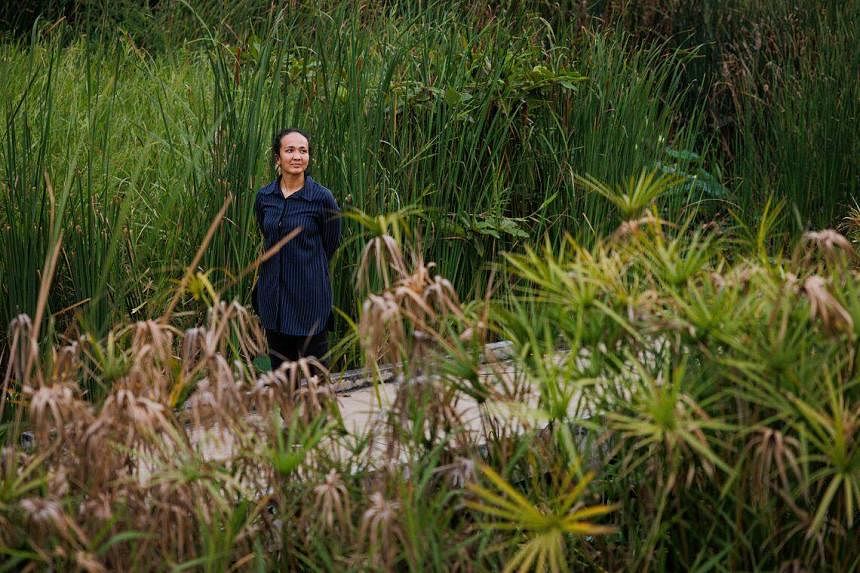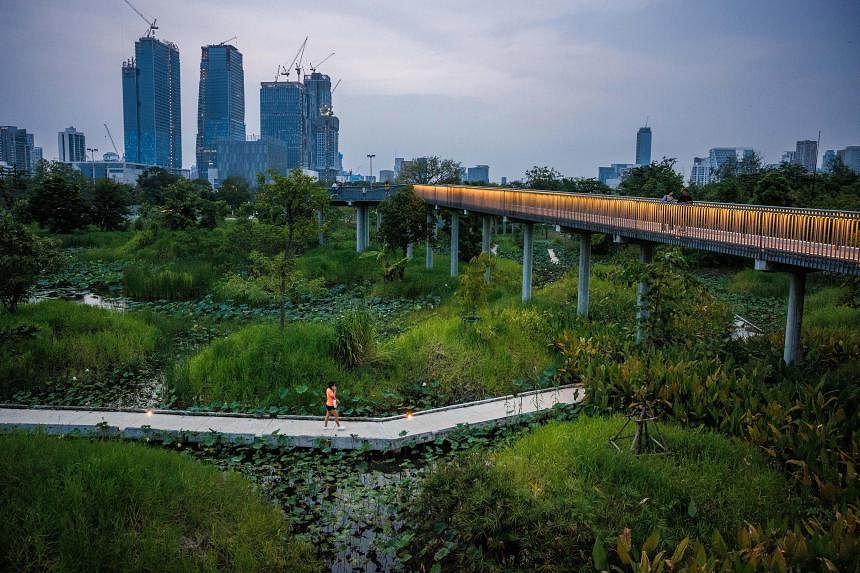BANGKOK – For more than half a century, Thailand’s state-owned tobacco monopoly mass-produced cigarettes at a sprawling industrial estate in Bangkok. A steady stream of heavy trucks brought raw tobacco into the heart of the city and hauled millions of cigarettes away.
But now, that cancer-inducing complex has given way to something completely different: a green space that has brought a breath of fresh air to Bangkok’s congested, often smoggy centre.
The transformation has been a stunning success, creating an oasis of about 41ha for city dwellers. The site – an expansion of the existing Benjakitti Park – includes an over-1.5km elevated walkway, as well as water-purifying wetlands, 8,000 new trees, pickleball and basketball courts, and a dog-walking zone.
The Skywalk, as the walkway is known, has become especially popular with young people. At sunset, as the heat of the day eases, it is often packed with visitors, many posing for selfies.
“Benjakitti Park is at the top of my list for places to take pictures,” said freelance photographer Pongsaton Tatone, who was on the Skywalk snapping shots of a group of university graduates cavorting in their gowns. “It is a very popular spot.”
The new section of the park was officially opened in August 2022, to honour the 90th birthday of Queen Sirikit, Thailand’s queen mother. Some attractions, including a museum, are still unfinished.
It is unusual for a big city to add significant tracts of new parkland, especially in densely populated South-east Asia. The US$20 million (S$27.1 million) addition is nearly twice the size of the original park, which features a lake and popular jogging path.
Bangkok, which has 11 million residents, needs more places like it. A 2022 report found that the city was falling short of the World Health Organisation’s minimum standard of 9 sq m of green space per person in urban areas.

Like Central Park in New York, Benjakitti is surrounded by skyscrapers. It is just a few blocks from Sukhumvit Road, one of the city’s most congested thoroughfares. Vehicle exhaust fills the air along Sukhumvit as pedestrians make their way down busy sidewalks, past office towers, hotels, vertical malls, street vendors and the occasional beggar.
Mr Mateusz Tatara, a software product designer from Poland, said he had been surprised to stumble across a forest park in the middle of a city better known for its magnificent temples, street food, lively entertainment scene and, now, marijuana shops.
“Even now we can hear nature,” he said during an evening visit to the park. “It is a tranquil, chill place.”
Just then, a flying fox – a large fruit bat with a fox-like face – soared overhead and landed in a nearby tree.
“When you think about Bangkok, this is not the first thing that comes to mind,” he said.
The Thai government designated the tobacco factory site as parkland in the early 1990s, and the first section of Benjakitti opened soon after that. But more than a quarter-century passed before the state-owned company, known then as the Thailand Tobacco Monopoly, handed over the entire site.
Mr Prayut Chan-o-cha, the army chief who seized power in a 2014 coup and became the Thai prime minister, took a personal interest in the park’s expansion, even as he cracked down on pro-democracy protests. He called for a creative approach to the park’s design (and he suggested the dog-walking area, a rarity in Bangkok).
To speed up construction during the pandemic, Mr Prayut’s government brought in the military. As many as 400 soldiers at a time worked on the project.
“The soldiers did everything,” said Ms Chatchanin Sung, a landscape architect who helped design the new section. “They are really proud of the park.”

Bangkok, which borders the Gulf of Thailand, was built on swampland. The flood-prone city once had so many canals that Europeans called it the Venice of the East. Over time, many of the canals were paved over, and others have become polluted backwaters.
One foul-smelling canal, the sewage-contaminated Khlong Phaisingto, was tapped as the source of water for the new park’s wetlands. Water is pumped from the canal into a series of pools and channels, where sunlight and vegetation help to clean it.
The odours dissipate long before the water reaches the wetlands’ main ponds, which are filled with lotuses and other aquatic plants. There, remaining sediments settle to the bottom as the water flows to the far end of the park. In four days, it is clean enough to use for irrigation.
“Nature balances itself,” Ms Chatchanin said during an afternoon walk through the park. “We didn’t expect it to work so well.”
The soldiers built 500 islets within the wetlands, using chunks of concrete salvaged from demolished factory buildings as foundations. They also planted more than 400 different species of trees.
A self-sustaining ecosystem, the expanded park has quickly attracted wildlife, including storks, herons, snakes, monitor lizards and dragonflies, which can eat more than 100 mosquitoes a day.
Its centrepiece, the Skywalk, gently rises and falls as it zigzags high above the wetlands. “When you walk on it, you can never see the final destination, so it makes you want to keep going to see what is next,” Ms Chatchanin said.
Of the enormous tobacco factory that once blighted central Bangkok, only four buildings remain. Three have been converted into sports facilities. All four have been opened to the outside, with parts of their walls and roofs removed – a novel approach that Ms Chatchanin calls natural air-conditioning.
Some rafters have been left in place, like the factory’s skeleton. Newly planted trees have already grown up through them.
“If you stand in the building, you can see nature all around you,” Ms Chatchanin said. NYTIMES

